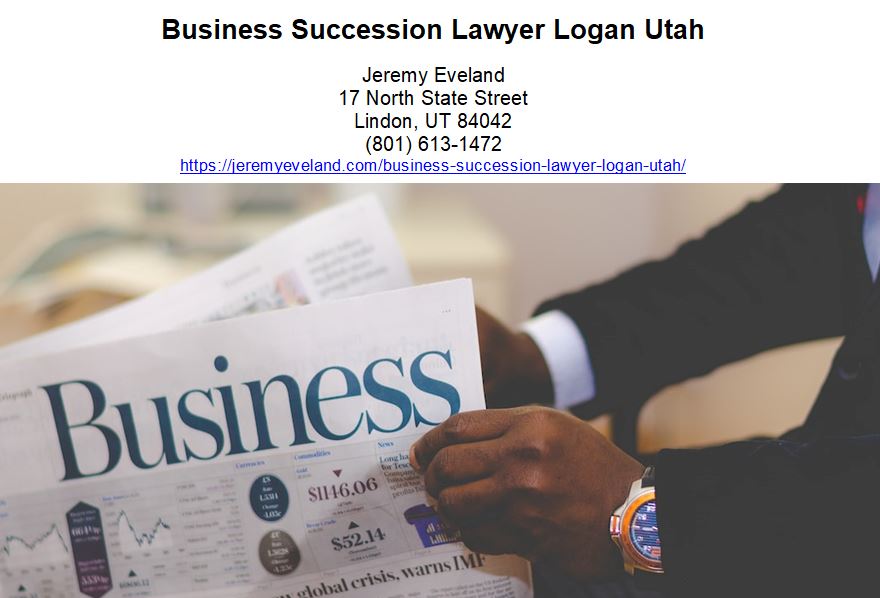Business succession planning is an important aspect of running a business, especially for owners who plan to retire or exit the business in the near future. Succession planning involves creating a plan that outlines how the business will be transitioned to new owners or leaders. One of the biggest challenges in business succession planning is navigating the legal aspects of the process. In this article, we will explore the various legal challenges involved in business succession planning and how to navigate them effectively.
Developing a successful business succession plan involves careful planning and consideration of various factors. Here are some steps you can take to create an effective succession plan:
Identify potential successors
Start by identifying individuals who have the potential to take on leadership roles within your organization. Look for people who have the necessary skills, experience, and personality traits to succeed in a leadership position. Identifying potential successors is a crucial step in developing a successful business succession plan. To identify individuals who have the potential to take on leadership roles within your organization, start by looking for people who possess key skills and experience necessary to succeed in such roles. This could include technical expertise, industry knowledge, strategic thinking, communication skills, and leadership qualities. Additionally, consider personality traits that are important for leadership positions, such as resilience, adaptability, emotional intelligence, and integrity. Look at your current team members, and consider their career aspirations and potential for growth. It’s also important to be open to hiring external candidates if necessary. By identifying potential successors early on, you can provide them with the necessary training and development opportunities to prepare them for their future leadership roles.
Determine your goals
Consider your long-term objectives and how they align with your successor’s goals. This will help you select the right person to lead your company into the future.
Develop a training program
Provide your potential successor with the necessary training and development opportunities to prepare them for their new role. This could include mentoring, job shadowing, or formal training programs.
Create a timeline
Establish a timeline for your succession plan, including key milestones and deadlines. This will help ensure that the transition is smooth and well-planned.
Communicate your plan
Make sure all stakeholders are aware of your succession plan, including employees, customers, and investors. This will help reduce uncertainty and build confidence in the future of your organization. Communicating your succession plan is essential to ensure a smooth transition and minimize uncertainty. By communicating your plan, you can help reduce anxiety and build confidence in the future of your organization among employees, investors, customers, and other stakeholders. This will also help avoid any misunderstandings or conflicts that may arise during the transition process. Furthermore, communicating your plans can help attract and retain talented employees who are looking for opportunities for growth within your organization. It shows them that you are invested in their career development and committed to creating a strong, sustainable future for the company. Regular communication and transparency around your succession plan can also help create a sense of trust and loyalty among your team members, further strengthening the stability and continuity of your business.
Review and update regularly
Regularly review and update your succession plan to ensure it remains relevant and effective. This will help ensure that your organization is always prepared for the future. Having a business lawyer review and update your business succession plan on a regular basis is essential to ensure that it remains relevant, effective, and legally compliant. A lawyer with experience in this area can help you identify potential issues or gaps in your plan and suggest revisions or updates as needed. This could include changes in ownership structures, tax laws, or other regulatory requirements that may impact your succession plan. Additionally, a business lawyer can help you draft legal documents such as buy-sell agreements, employment contracts, and other key documents that are necessary for a successful transition. Regularly reviewing and updating your succession plan with the help of a lawyer can help ensure that it is in line with your current goals and objectives and help you avoid costly mistakes or disputes down the road. Ultimately, having the guidance of a skilled legal professional can provide peace of mind and help ensure the long-term success of your business.
Remember, developing a successful business succession plan takes time and effort, but it can help ensure the long-term success of your organization.
What is Business Succession Planning?
Business succession planning is the process of creating a plan that outlines how a business will be transitioned to new owners or leaders when the current owner(s) retire, sell the business or pass away. It is a critical process that ensures the continuity of a business and protects the interests of stakeholders. Business succession planning involves various legal considerations, including taxes, ownership transfer, employee agreements, estate planning, buy-sell agreements, and insurance. Business owners must understand the legal aspects of business succession planning to ensure a smooth and successful transition of the business to the next generation of leaders.
Legal Considerations in Business Succession Planning
Taxes
One of the primary legal considerations in business succession planning is taxes. Business owners must consider the tax implications of transferring ownership and assets to ensure that they do not pay more in taxes than necessary. Estate and gift taxes, capital gains taxes, and income taxes are just a few of the taxes that can impact business succession planning. It is essential to work with a qualified tax professional to navigate these tax issues effectively.
Ownership Transfer
The transfer of ownership is another crucial legal consideration in business succession planning. Business owners must have a clear plan in place to transfer ownership of their business, including legal documentation, valuation, and financing. Legal documentation such as contracts and agreements must be in place to ensure that the transfer of ownership is clear and legally binding. Business owners must also determine the value of their business to determine fair compensation for the transfer of ownership. Financing may be necessary to fund the transfer of ownership, and business owners must navigate legal requirements for obtaining financing.
Employee Agreements
Employee agreements are another legal consideration in business succession planning. Business owners must have clear employment contracts in place that outline employee rights, benefits, and responsibilities. Non-compete agreements may also be necessary to protect the business from competition from former employees. Severance packages may be required for employees who are not retained during the transition.
Estate Planning
Estate planning is an essential legal consideration in business succession planning, especially for owners who plan to pass their business on to heirs. Estate planning involves creating a will, trust, power of attorney, and health care directives that ensure that the business owner’s wishes are carried out if they are incapacitated or pass away. Business owners must navigate complex legal requirements for estate planning, including tax implications and legal documentation.
Buy-Sell Agreements
Buy-sell agreements are legal contracts that outline how a business will be bought and sold in the event of certain triggers, such as the death or retirement of a business owner. Buy-sell agreements can be structured in various ways and may include provisions for funding the buyout of a business owner’s interest in the business. Business owners must navigate legal requirements for creating buy-sell agreements, including determining the value of the business and financing the buyout.
Insurance
Insurance is a legal consideration in business succession planning as it can provide financial protection in the event of unexpected events such as disability or death. Life insurance can provide funds to buy out a business owner’s interest in the business, while disability insurance can provide income if a business owner is unable to work due to a disability. Business interruption insurance can also provide financial protection if the business is forced to close temporarily due to a covered event.
Preparing for Business Succession
Importance of Early Planning
Early planning is critical in business succession planning to ensure that the business owner has enough time to develop a comprehensive plan and identify potential successors. Business owners must also ensure that they have sufficient time to train and develop potential successors to ensure a smooth transition of leadership and management.
Identifying Successors
Identifying potential successors is an essential step in business succession planning. Business owners must consider who is best suited to take over the business, including family members, employees, or outside parties. Business owners must also ensure that potential successors have the necessary skills and training to lead and manage the business successfully.
Developing a Succession Plan
Developing a succession plan involves several key steps, including establishing a timeline, determining leadership and management succession, training and development, communication, and continuity planning.
Timeline
Establishing a timeline is essential to ensure that the business owner has enough time to develop and implement a comprehensive plan. A timeline should include specific milestones and deadlines to ensure that the plan is on track.
Leadership and Management Succession
Determining leadership and management succession is critical in business succession planning. Business owners must determine who will take over leadership and management roles and ensure that potential successors have the necessary skills and training to succeed.
Training and Development
Training and development are essential in business succession planning to ensure that potential successors have the necessary skills and knowledge to lead and manage the business successfully. Business owners must develop a training and development plan that provides potential successors with the necessary education and experience.
Communication
Communication is critical in business succession planning to ensure that all stakeholders are aware of the plan and their roles in the transition. Business owners must communicate the plan to employees, family members, and other stakeholders to ensure a smooth and successful transition.
Continuity Planning
Continuity planning is essential in business succession planning to ensure that the business can continue to operate smoothly during the transition. Business owners must develop contingency plans for unexpected events and ensure that critical business processes and operations can continue uninterrupted.
Training and Development
Training and development are essential components of business succession planning. Business owners must ensure that potential successors have the necessary skills and knowledge to lead and manage the business successfully. Training and development can include on-the-job training, mentoring, coaching, and education programs.
Implementing the Succession Plan
Implementing the succession plan involves several key steps, including communicating the plan to all stakeholders, obtaining legal documentation, funding the transfer of ownership, and managing the transition. Business owners must ensure that all stakeholders are aware of their roles and responsibilities during the transition and that legal documentation is in place to ensure that the transfer of ownership is legally binding.
FAQ (Frequently Asked Questions)
What is business succession planning?
Business succession planning is the process of planning for the transfer of ownership and management of a business from one generation to the next or from one owner to another. It involves identifying potential successors, developing a comprehensive plan, and implementing the plan to ensure a smooth and successful transition.
Why is business succession planning important?
Business succession planning is important because it ensures that a business can continue to operate successfully after the departure of the current owner or management team. It also provides financial security for the owner and their family and ensures that employees and other stakeholders are not negatively impacted by the transition.
What are some legal considerations in business succession planning?
Legal considerations in business succession planning include obtaining legal documentation, determining the value of the business, navigating financing requirements, establishing employee agreements, and creating buy-sell agreements. Estate planning and insurance are also essential legal considerations.
What is a buy-sell agreement, and why is it important in business succession planning?
A buy-sell agreement is a legal contract that outlines how a business will be bought and sold in the event of certain triggers, such as the death or retirement of a business owner. Buy-sell agreements can provide a framework for the transfer of ownership and ensure that the business can continue to operate successfully after the departure of the current owner.
How can training and development support business succession planning?
Training and development are essential components of business succession planning as they ensure that potential successors have the necessary skills and knowledge to lead and manage the business successfully. Training and development can include on-the-job training, mentoring, coaching, and education programs, and can help to ensure a smooth and successful transition of ownership and management.
Definition of Business Succession Planning
Business succession planning is an ongoing process of identifying, training, and developing key employees who have the potential to take over leadership positions within an organization. It involves creating a comprehensive plan that outlines how ownership and management of a company will be transferred from one generation to the next.
The ultimate goal of this process is to ensure that there is a smooth transition in leadership when key personnel retire or otherwise leave their positions within an organization. Business succession planning involves more than just selecting successors; it also requires effective communication with all stakeholders involved in the process.
This includes employees, family members (if applicable), shareholders, and external partners such as customers and suppliers. As such, it is essential to engage in open dialogue with these parties throughout every step of the succession planning process.
Importance of Navigating Legal Challenges in Business Succession Planning
Navigating legal challenges in business succession planning is crucial because there are various legal implications involved in transferring ownership and management from one generation to another. These legal challenges can carry significant consequences if not appropriately addressed before implementing any changes.
One major legal challenge faced by businesses during transition periods includes estate and gift taxes, which can significantly impact business operations if not adequately planned for. Other challenges include ownership transfer restrictions that may limit how ownership can be transferred between parties and family disputes which may arise due to disagreements among family members regarding who should take over leadership roles within an organization.
As such, navigating these legal challenges is critical to ensure that the business can continue to operate effectively and efficiently even during a period of transition. By working with professionals to develop a comprehensive plan that addresses these issues, businesses can mitigate risks and ensure a smooth transition in leadership.
Estate and Gift Taxes
One of the key legal challenges in business succession planning is estate and gift taxes. Estate taxes are taxes that may be imposed on your estate after your death if the value of the assets you leave behind exceeds a certain threshold. On the other hand, gift taxes are imposed on gifts of property while you are still alive.
Both estate and gift taxes can have a significant impact on the value of your business, making it important to understand how they work and how to minimize their impact. An overview of estate and gift taxes is necessary to navigate this legal challenge in business succession planning.
You should become familiar with current tax laws that pertain to your particular situation, as these laws can change frequently. Additionally, it is important to understand how different types of assets are valued for tax purposes, as this can impact your overall tax liability.
Strategies to minimize estate and gift taxes include gifting assets during your lifetime, creating trusts to hold assets for future generations, structuring buy-sell agreements properly, or using life insurance policies as part of an overall estate plan. It is essential that you work with a qualified financial planner or attorney who has experience in dealing with complex tax issues related to business succession planning.
Ownership Transfer Restrictions
In order for a business succession plan to be successful, it must address ownership transfer restrictions. There are several types of ownership transfer restrictions that may apply depending on the structure of your business.
For example, if you have partners in your business, there may be restrictions on transferring ownership interests without first obtaining consent from all partners. Legal considerations for ownership transfer restrictions must also be taken into account when navigating this challenge in business succession planning.
These considerations include state law requirements regarding restrictions on transfers of ownership interests, as well as any contractual agreements between owners that govern transfers of ownership interests. Strategies to address ownership transfer restrictions include creating company bylaws or operating agreements that set forth the terms governing transfers of ownership interests, or using a shareholder agreement that contains provisions designed to prevent unwanted transfers.
It is also important to consider alternative strategies such as buy-sell agreements, in which owners agree to sell their interests at certain events such as retirement or death. By working with a legal professional who has experience in drafting these types of documents, you can ensure that your business succession plan is tailored to your specific needs and goals.
Family Disputes and Litigation
Family disputes and litigation are common challenges in business succession planning. These disputes can arise for a variety of reasons, including disagreements about how the business should be managed after the founder’s retirement or death, unequal treatment among family members who are involved in the business, or disagreement over the value of the business. Family disputes can not only disrupt operations but also result in costly litigation that can quickly erode the value of a business.
Common causes of family disputes must be identified early on when navigating this legal challenge in business succession planning. By recognizing potential sources of conflict before they arise, you may be able to take steps to mitigate them.
For example, involving all interested parties in discussions about how the business should be managed after the founder retires or dies may help avoid disputes over control later on. Strategies aimed at avoiding family disputes include open communication among all family members involved in management decisions and clear documentation outlining governance structures and decision-making processes within the company.
In cases where litigation is unavoidable, it is essential that you work with experienced attorneys who understand both your industry and your unique situation as a closely-held family-owned enterprise. A successful legal strategy requires careful consideration of both legal issues and emotional concerns related to the future of both family relationships and the business itself.
Best Practices for Navigating Legal Challenges in Business Succession Planning
Business owners face several legal challenges when planning for the transfer of ownership and management of their company. These challenges can include estate and gift taxes, ownership transfer restrictions, and family disputes. To navigate these challenges successfully, it is essential to follow best practices, such as seeking professional advice early on and communicating effectively with all stakeholders.
Seek Professional Advice Early On
One of the key best practices when navigating legal challenges in business succession planning is to seek professional advice early on. Experienced professionals can help business owners avoid costly mistakes that could impact the success of their business succession plan.
There are several types of professionals that a business owner may want to consult when planning for the transfer of ownership and management. These professionals include attorneys who specialize in estates and trusts, accountants who specialize in tax law, and financial advisors who can provide guidance on investments and retirement planning.
Importance of Seeking Professional Advice Early On
Business owners may be hesitant to seek out professional advice due to concerns over cost or a desire to maintain control over the process. However, failing to seek professional guidance early on can lead to costly mistakes that could ultimately undermine the success of the succession plan. By consulting with experienced professionals from the outset, business owners can ensure they are aware of all available options and strategies for minimizing legal risks associated with business succession planning.
Types of Professionals to Consult with in Business Succession Planning
When seeking professional advice for business succession planning purposes, it is important to work with experts who have experience working specifically in this area. Attorneys who specialize in estates and trusts can offer guidance on tax implications related to estate transfers or sales.
Accountants specializing in tax law will have knowledge regarding potential taxes levied during transfers or sales as well as laws regarding gift giving if applicable. A financial advisor can offer guidance on managing investments and retirement accounts.
Communicate Effectively with All Stakeholders
Clear communication is critical when navigating legal challenges in business succession planning. Business owners should communicate effectively with all stakeholders, including family members, employees, and the successors of the business, to ensure that everyone understands the plan and their role in it.
The Importance of Effective Communication
Effective communication is essential to ensure stakeholders understand their roles in the succession plan and are comfortable with the process. Failing to communicate effectively can lead to misunderstandings or disputes that could derail the succession plan altogether.
Strategies for Effective Communication with All Stakeholders
To ensure effective communication during business succession planning, it is important to establish clear lines of communication early on. This may include regular meetings or check-ins between all stakeholders involved in the process. In addition, providing clear documentation outlining roles, responsibilities, and expectations can help avoid misunderstandings or disputes down the line.
Moreover, transparency is key when communicating about business succession planning. It is important to be open and honest about any potential conflicts or challenges that may arise throughout the process so that everyone involved is aware of what they need to do for a successful outcome.
Conclusion
Summary of Key Points
It’s essential to effectively navigate legal challenges in business succession planning to ensure a smooth transfer of ownership and continuation of the business. Estate and gift taxes, ownership transfer restrictions, and family disputes are among the most common legal challenges businesses face during succession planning.
Business owners need to work with professionals early on to develop strategies that minimize estate and gift taxes while complying with regulations and laws. They also need to communicate effectively with all stakeholders, including family members, employees, and partners.
Final Thoughts on Navigating Legal Challenges in Business Succession Planning
Navigating legal challenges in business succession planning requires careful planning, communication, and cooperation among all stakeholders involved. The process can be complex and stressful for everyone involved, but it can also provide an opportunity for growth and development for the business. By seeking professional advice early on in the process and developing a comprehensive plan that includes effective communication strategies with all stakeholders, businesses can navigate these challenges successfully.
Business succession planning isn’t just about transferring ownership from one person to another; it’s about ensuring the continuity of the company’s legacy. By addressing legal challenges head-on and working proactively to overcome them, you can protect your company’s future while securing a legacy that will last for generations.
Areas We Serve
We serve individuals and businesses in the following locations:
Salt Lake City Utah
West Valley City Utah
Provo Utah
West Jordan Utah
Orem Utah
Sandy Utah
Ogden Utah
St. George Utah
Layton Utah
South Jordan Utah
Lehi Utah
Millcreek Utah
Taylorsville Utah
Logan Utah
Murray Utah
Draper Utah
Bountiful Utah
Riverton Utah
Herriman Utah
Spanish Fork Utah
Roy Utah
Pleasant Grove Utah
Kearns Utah
Tooele Utah
Cottonwood Heights Utah
Midvale Utah
Springville Utah
Eagle Mountain Utah
Cedar City Utah
Kaysville Utah
Clearfield Utah
Holladay Utah
American Fork Utah
Syracuse Utah
Saratoga Springs Utah
Magna Utah
Washington Utah
South Salt Lake Utah
Farmington Utah
Clinton Utah
North Salt Lake Utah
Payson Utah
North Ogden Utah
Brigham City Utah
Highland Utah
Centerville Utah
Hurricane Utah
South Ogden Utah
Heber Utah
West Haven Utah
Bluffdale Utah
Santaquin Utah
Smithfield Utah
Woods Cross Utah
Grantsville Utah
Lindon Utah
North Logan Utah
West Point Utah
Vernal Utah
Alpine Utah
Cedar Hills Utah
Pleasant View Utah
Mapleton Utah
Stansbury Par Utah
Washington Terrace Utah
Riverdale Utah
Hooper Utah
Tremonton Utah
Ivins Utah
Park City Utah
Price Utah
Hyrum Utah
Summit Park Utah
Salem Utah
Richfield Utah
Santa Clara Utah
Providence Utah
South Weber Utah
Vineyard Utah
Ephraim Utah
Roosevelt Utah
Farr West Utah
Plain City Utah
Nibley Utah
Enoch Utah
Harrisville Utah
Snyderville Utah
Fruit Heights Utah
Nephi Utah
White City Utah
West Bountiful Utah
Sunset Utah
Moab Utah
Midway Utah
Perry Utah
Kanab Utah
Hyde Park Utah
Silver Summit Utah
La Verkin Utah
Morgan Utah
Navigating Legal Challenges in Business Succession Planning Consultation
When you need help with Navigating Legal Challenges in Business Succession Planning call Jeremy D. Eveland, MBA, JD (801) 613-1472 for a consultation.
Jeremy Eveland
17 North State Street
Lindon UT 84042
(801) 613-1472
Related Posts
What Does A Corporate Counsel Do?
Can Corporate Counsel Represent A Corporation In Court?
Corporate Attorney Salt Lake City Utah
Business Succession Lawyer Saratoga Springs Utah
Estate Planning Salt Lake City Utah
Business Succession Lawyer Holladay Utah
Corporate and Business Law in Utah
Does Starting My Own Business Mean I Get A Corporation Automatically?
Impact of Environmental Regulations on Business Law Compliance
Business Lawyer South Jordan Utah
Business Lawyer Millcreek Utah
Business Lawyer Taylorsville Utah
How Artificial Intelligence is Shaping the Future of Business Law






























